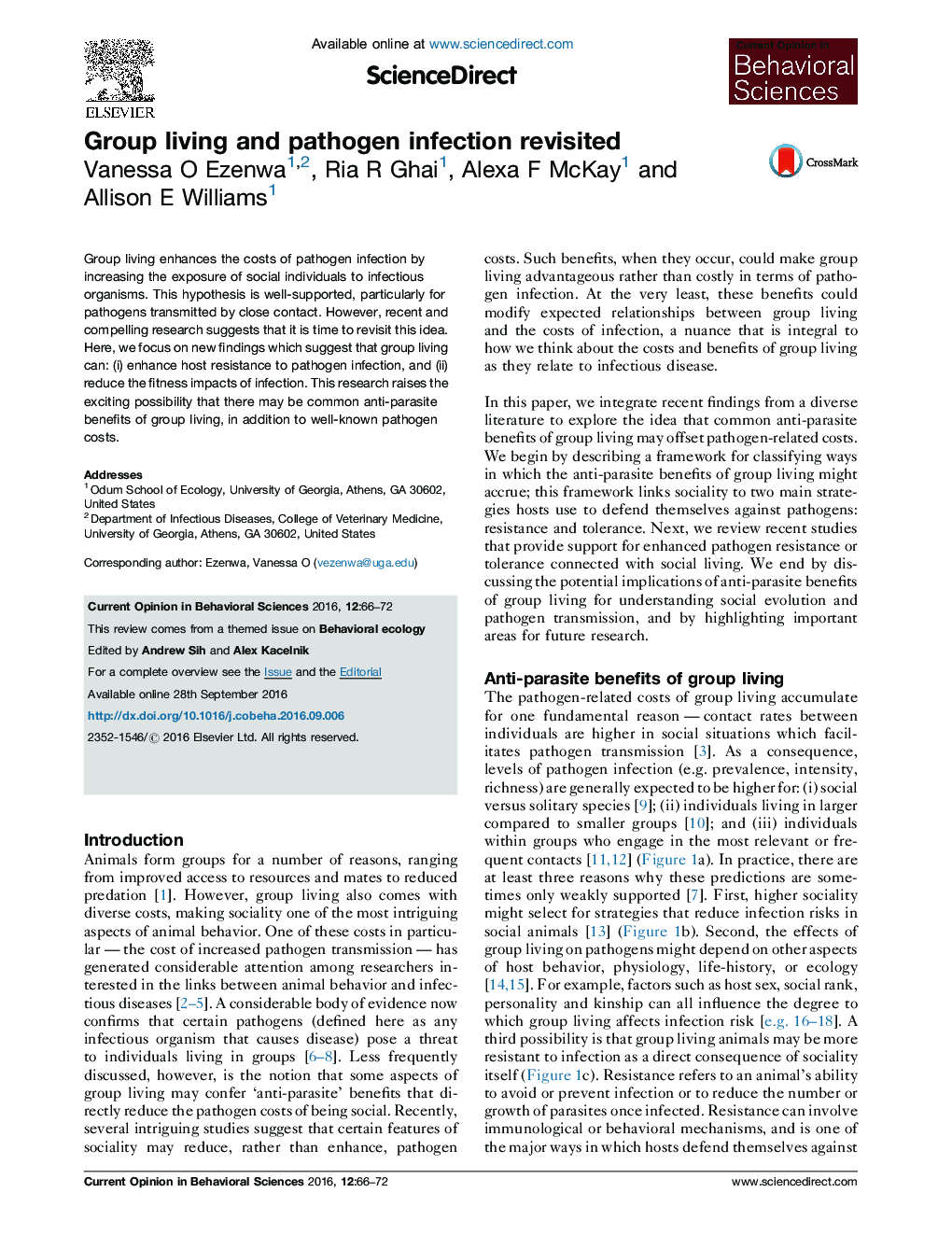| Article ID | Journal | Published Year | Pages | File Type |
|---|---|---|---|---|
| 6260405 | Current Opinion in Behavioral Sciences | 2016 | 7 Pages |
â¢Group living may confer pathogen resistance or tolerance benefits on hosts.â¢Transmission of low doses of pathogens in social groups might protect individuals from future infection.â¢Improved resource acquisition in social groups might help individuals mitigate the fitness costs of infection.â¢Social transmission of commensal microbes might enhance both host resistance and tolerance to pathogens.â¢Anti-parasite benefits of group living may be as common as well-known pathogen costs.
Group living enhances the costs of pathogen infection by increasing the exposure of social individuals to infectious organisms. This hypothesis is well-supported, particularly for pathogens transmitted by close contact. However, recent and compelling research suggests that it is time to revisit this idea. Here, we focus on new findings which suggest that group living can: (i) enhance host resistance to pathogen infection, and (ii) reduce the fitness impacts of infection. This research raises the exciting possibility that there may be common anti-parasite benefits of group living, in addition to well-known pathogen costs.
